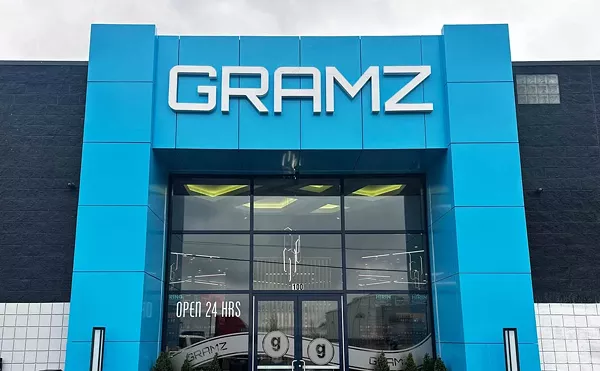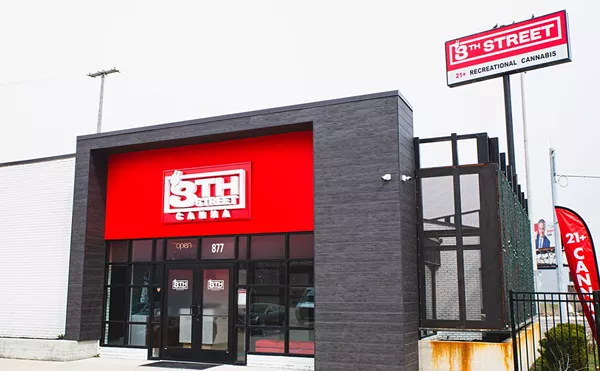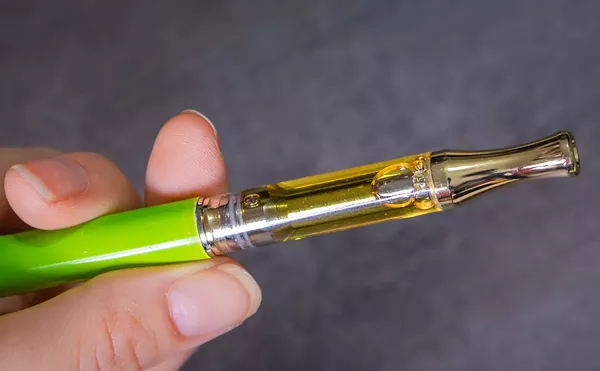My own neighborhood has been going through the Detroit marijuana provisioning center wars. The location on the corner of Eight Mile Road and Gardendale Street has been targeted by the Metropolitan Detroit Community Action Coalition (MDCAC) which has kept it closed much longer than it was ever open.
I noted a few years back when folks were working on the building for the Gardendale Provision Center and figured I would come back to check it out when it opened. I never got the chance to do that. I didn't catch when the grand opening was, and shortly after that the place closed down — a few months at best.
For the local anti-marijuana crowd, though, it was an eternity. The traffic on Gardendale, they say, was always jammed due to the center's customers. They also say customers were sitting in their cars and getting high.
Apparently the GPC's owners have applied for zoning approval and business licenses under the city's new ordinances. According to the contents of emails between the city of Detroit and members of MDCAC, there's some insight into how these things go down.
First of all, let's remember that the city's zoning ordinance for Medical Marijuana Caregiver Centers stipulates that they be located more than 1,000 feet from places like schools, parks, churches, day care centers, liquor stores, pool or billiard halls, arcades, public housing, and other medical marijuana facilities.
In other words, nowhere near where most of the people live and do business.
There are some spots here and there that are not in industrial zones, and the GPC has found one of them. It's on Eight Mile Road nestled in a neighborhood with tree-lined streets and the residences of several lawyers and judges, an active community organization with vigilant community patrol volunteers.
"I don't have the notice in front of me, but there were a couple of reasons for the denial, including that the MMCC would be detrimental to the enjoyment of nearby property," a volunteer reporting back to her people from a hearing about the GPC application wrote in an email. "BSEED cited the examples that neighbors gave of increased traffic on Gardendale and Picadilly Streets as well as the odor from the plants."
Apparently as more evidence mounted to keep GPC closed, the MDCAC pointed out that the store is directly across Eight Mile's eight lanes of traffic (and an island) from Ferndale's Garbutt Park. On the furthest end of the park from GPC sits a Digital Learning Center operated by the Ferndale School Board, and is therefore in a Drug Free Zone.
"3845 W. Eight Mile is not in a DFZ (Drug Free Zone) because the park, outside of Detroit, is not relative per Detroit's law department," City inspector Lawrence Muhammad wrote to MDCAC leader Winfred Blackmon. "Further, the school is not in business and therefore is not relative to their MMCC application. If the school was active for children then this site would be a DFZ."
A quick aside here. One of the big issues for facility owners in the licensing process is that city records are not necessarily concurrent with things on the ground. The city may have some place listed as a daycare that has been closed for years, but because of erroneous records a permit could be denied. At least the city was on top of knowing that the facility in Ferndale was not operating.
I went over to Gardendale to talk to some of the folks who lived near there. One woman I talked to told me how terrible the traffic had been and that the marijuana users were coming right out and smoking in their cars.
Across the street from her, a man told me that he had bought his house and was working on it before he moved in while it was open. He said that traffic was a little heavier then but not that bad.
"Anything that's popular there is going to bring traffic," he says.
Indeed, Gardendale is a fairly busy street partly because it's where the turnaround on Eight Mile is. It's one of the few easy access spots in the neighborhood from westbound Eight Mile Road.
Then he told me that the folks who want to keep GPC closed had come around and "reminded" neighbors of how bad it had been when it was open and were kind of coaching people on what to say.
As I talked to neighbors I got a mix of perceptions. One guy told me that before GPC ever opened that he would sometimes see people smoking marijuana in their cars. A woman told me that she didn't mind that there were marijuana stores around but would prefer that it wasn't on her corner. She said that a couple of times she's seen people getting high in their cars, although she's not sure where they came from. She says she tells them to be on their way.
"I don't care that they can get it but they should go home with it," she says, "or go over to Palmer Park."
I'm pretty sure that smoking marijuana in Palmer Park is illegal. Not to mention that the Detroit ordinances have resulted in shuttering a couple of provisioning centers that were across Woodward from Palmer Park.
The GPC can appeal the decision, but Blackmon and his allies are pretty good at packing the meetings and opposing any variances. Actually, GPC would not even need a variance as it is not within 1,000 feet of any schools, churches, etc. However, there are a fair amount of judges, lawyers, and city employees in the neighborhood, and if the city deems the GPC location a nuisance it's probably going to stick.
This shows that even a facility that satisfies the city standards for a location can still be labeled a nuisance. Bottom line, anyone seeking to get into the business in Detroit still does not have clear guidelines on what they need to do.
In other pot news:
Detroit's Medical Marijuana Caregiver Center zoning and licensing laws are the most restrictive in the country. At least that was the conclusion of Ron Jones from the Sons of Hemp, who spoke on the minority panel at the recent Southeast Michigan Cannabis Business Development Conference at the Atheneum Hotel recently. The Sons of Hemp are involved in efforts to rewrite or amend those laws to add local ownership provisions.
The Coalition to Regulate Marijuana Like Alcohol announced that its petition initiative has gathered 100,000 signatures about six weeks into its drive. The CRMLA has to gather a little over 252,000 valid signatures by Oct. 22 to quality for the 2018 ballot. This initiative would legalize recreational use of marijuana in Michigan; if successful, Michigan would join Colorado, Washington, Oregon, Alaska, California, Nevada, Massachusetts, Maine, and the District of Columbia in legalizing recreational use. Oh yeah, and Canada.







